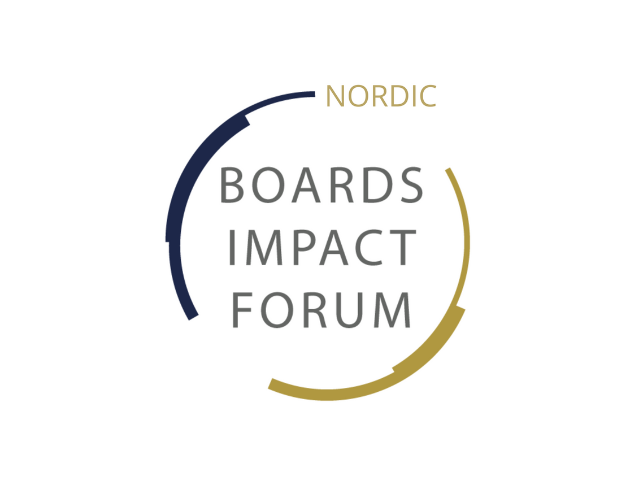
Host:
Boards Impact Forum
Moderator:
Liselotte Engstam, Chair, Boards Impact Forum; Board Member, Climate Governance Initiative; Chair & Non-Executive Director
Panellists:
- Morten Bennedsen, Visiting Professor, Wendel International Centre for Family Enterprise, INSEAD; Professor of Economics, University of Copenhagen
- Peter Ahlström,CEO, A. Ahlström Real Estate (part of Ahlström Capital); NED of Westas, Broman Group, MVR Yhtymä and Mairea Foundation
- Kathrine Löfberg, Chair of Löfberg Group; Chair Coffee & Climate
- Erik Urnes, Vice Chair, Lindengruppen; Chair, Bintel, SenCom, MindPark; NED, Hoganäs
Active and engaged owners ensure that their companies work with both the risks and the opportunities related to climate change, together with other sustainability issues. A key success factor is stakeholder dialogue and engagement.
According to Professor Morten Bennedsen companies are currently contemplating on how sustainability is included in their value proposition and marketing versus if their current carbon footprint is documented. Many companies are uncertain about the purpose of their sustainability reporting: is it for the company itself, for the stakeholders or for society at large? Nevertheless, the trend to integrate sustainability and financial reporting is getting stronger.
“You need to make the analysis what sustainability means to your company. Make a plan and set targets, start getting stable data, measure and develop further.” – Morten Bennedsen
Peter Ahlström, shared the mission of their family business which is “A better world for future generations.” The Ahströms have Climate change, Resource efficiency and Biodiversity as environmental sustainability focus areas. On the social side they have Employee Well-being, Health & Safety and Diversity & Inclusion. On the governance side the focus areas are Business ethics and Nordic governance model. There are already 7 generations in Ahlström family with altogether 400 family members. The family wants to get the next generation on board. Therefore the shared values are very important.
“As owner you need to figure out your own ambition. Clarity helps. Do not make it too complicated. Walk the talk. Purpose is key, so spend time on that and ensure that you are proud of that purpose.” – Peter Ahlström
Katherine Löfberg told us that sustainability is in the DNA of the family coffee business established in 1906. Sustainability is integrated in everything they do. Kathrine considers it important that the board has other experiences outside the family owners, with a solid understanding on sustainability. You ought to select people with strong integrity as board members and board members need to speak out and not be afraid to speak against the owners’ opinion.
“Look at your own business and value chain, where are your difficult points and development themes. Prioritize them, but do not leave out the rest. Take care of you employees. Set clear targets. Your competitors are following you. Stretch the targets to beat the competition. Be transparent on your plans and targets, what has been achieved and what has not been achieved.” – Kathrine Löfberg
Erik Urnes pointed out that many companies do have challenges in integrating sustainability into strategy. Companies are still at the very early stage as regards sustainability. The systems are slow. Not everybody is engaged yet. There are many owners who prioritize other things, which is understandable. There have also been some scandals around due to careless owners. But strong families and owners can make a difference. We have sustainability in our DNA and monitor, evaluate and improve our impact continuously.
“In private companies the ownership agenda is important. Strategic questions with all the decisions: Is this in line with our purpose and our strategy? You need to push from the board to make sustainability integrated into the business.” – Erik Urnes
Erik Urnes shared how Lindengruppen has redefined their approach to value creation and started to use impact accounting to clarify the firms impact.
In private family companies you do have a personal commitment but the whole board and management need to be committed to sustainability as well.
Ambition to Action: Key actions for boards
Be accountable for how you earn your money, the next generation are looking at you and requires action. Bring in new insights and outside perspectives to the board through independent board members and here the nomination process and diversity are important. The whole board and management need to be committed to sustainability. Accept the fact that not everything can be known and measured today. Start to work with what you have and strive to gradually improve.
Key steps to take:
– Make the materiality analysis – double materiality
– Decide what you want to measure and start measuring
– Set goals and follow-up.
This summary was provided by the session hosts.